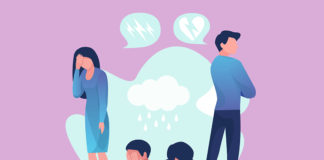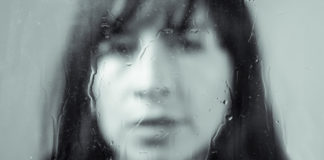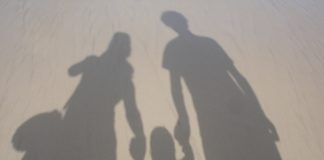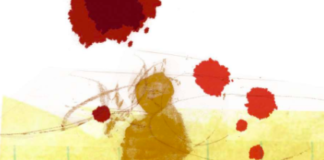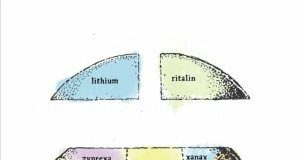Tag: childhood trauma
Smoke ‘Em if You Got ‘Em: Rethinking Smoking as a Trauma...
For people with trauma-impacted brains, smoking is a tool to quiet an ever-present storm.
Inadequately Trained Therapists Pose a Risk to Childhood Trauma Survivors
Mental health professionals must be trained in the dynamics of addiction and abuse if they are to help survivors of childhood trauma.
Engaging “Madness”: A Guide for Significant Others and Families
Using personal stories from my own family, my new booklet Engaging 'Madness' paints a clear picture of what an alternative healing journey outside the biomedical paradigm can look like.
The False Memory Syndrome at 30: How Flawed Science Turned into...
Soon after states finally began providing adults who remembered childhood abuse with the legal standing to sue, the FMSF began waging a PR campaign to discredit their memories—in both courtrooms and in the public mind.
Lockdown Reading to End DSM Psychiatry?
A review of the "Adult Children of Emotionally Immature Parents" books by Lindsay Gibson. Even though adults experience emotional loneliness, such loneliness can also start in childhood when we might have felt (and I would submit, actually were) unseen emotionally by self-preoccupied parents.
6 Ways Trauma Might Inform Your Current Life
The following are some ways in which trauma commonly impacts a trauma survivor’s life. Imagine, as you read, how different our society might be if systems of care and justice were as trauma-informed as your life might be.
“Ontological Insecurity” May Play A Role in Psychotic Experiences
In a new study published in the Journal of Clinical Psychology, researchers tested how well “ontological insecurity” predicted psychotic-like experiences (PLEs). They found that...
Memories of a Childhood in a Mental Hospital
My stay at the hospital had no impact on the problem that led to my admission. But it did exacerbate other problems and change me in fundamental ways. I am a deformed product of that ‘cutting-edge facility’ and the ‘treatments’ I received there — social isolation, pills and shots, ice bath and ECT.
Childhood Emotional Abuse Associated with Internal Eating Disorder Voice
Many individuals diagnosed with eating disorders describe and internal ‘voice,’ which may be linked to experiences of childhood trauma and dissociation.
The Forced Psychiatric Treatment of a Child
This is my story of forced psychiatric treatment as an eight-year-old girl, from my perspective as an adult mental health professional. Being held down kicking and screaming to be injected with a benzodiazepine is a human rights violation no child should endure for saying no to a pharmaceutical. In hindsight, when I reflect on that day, it feels like a form of child abuse.
Meta-analysis Links Childhood Trauma to Psychosis Symptoms
The study results suggest that experiences of childhood trauma impact the development of symptoms associated with psychosis.
The Demographics of Childhood Trauma
From Pacific Standard: A new study records the prevalence of several different Adverse Childhood Experiences (ACEs) as well as the demographic groups who are most likely to experience childhood trauma.
"The most prevalent...
Should We Screen for Adverse Childhood Experiences?
One author outlines the foundations of Adverse Childhood Experiences (ACEs) research, addressing its dimensions, limitations, and potential future directions.
All in the Family: 4 Steps Toward Healing Adverse Childhood Experiences
It turns out that our stress response and inflammatory modeling are set early in our childhood. While our infant microbiome certainly lays a foundation, our beliefs and the thoughts that run like a ticker tape under our life experience cannot be underemphasized. How can we heal our pasts?
Coping With Trauma in the Classroom
From the Stamford Advocate: Increasing numbers of students have been affected by trauma; almost half of American adolescents have experienced an adverse childhood event. It...
Childhood Victimization Connected with Experiences of Psychosis
Childhood victimization associated with experiences of psychosis later in life, and in persons without childhood victimization, there is a bidirectional association between psychosis and adult victimization.
Bipolar Disorder: Childhood Trauma Modulates Impact
From Psychiatry Advisor: Childhood trauma modulates the effects of bipolar disorder on the amygdala and hippocampus; it is associated with increased volumes of gray matter.
"'Childhood maltreatment has...
A System Built on Fear
Experiences such as pain, turmoil, trauma and grief aren’t separate from the person—they shape how that person sees the world, how they cope with the world. To separate those experiences from the person, to call them sick, feels barbaric. It feels as if humans are being taught to fear being human.
Study Connects Environmental Risk Factors and Psychosis
A meta-analysis of known risk factors for psychosis finds elevated risk with the presence of childhood trauma, adverse life events, and affective dysfunction.
Bipolar Diagnosis Linked to Childhood Adversity
With the ties between traumatic childhood experiences and mental health issues, should we continue to focus on biological approaches?
What Would a Trauma-Informed Society Look Like?
Imagine if we, as a society, started recognizing trauma, pain, grief, fear, the need for connection and understanding, and oppression without defensiveness or denial. What if, hypothetically, we saw the signs in people who were "defiant," "withdrawn," "oppositional," "depressed," "manic," or otherwise as desperate pleas to have their needs met, and stopped telling them they were sick for doing so? What would a society that actually encouraged expression of emotion, compassion, and empathy look like?
Victim Blaming: Childhood Trauma, Mental Illness & Diagnostic Distractions?
Why, despite the fact that the vast majority of people diagnosed with a mental illness have suffered from some form of childhood trauma, is it still so difficult to talk about? Why, despite the enormous amount of research about the impact of trauma on the brain and subsequent effect on behaviour, does there seem to be such an extraordinary refusal for the implication of this research to change attitudes towards those who are mentally ill? Why, when our program and others like it have shown people can heal from the effects of trauma, are so many people left with the self-blame and the feeling they will never get better that my colleague writes about below?
“Silent” Forms of Child Abuse Strongly Tied to Depression
Psychological abuse and childhood neglect are strongly associated with depression in adulthood, according to a meta-analysis of childhood trauma and depression published in this month’s issue of the Journal of Affective Disorders. “The findings clearly highlight the potential impact of the more ‘silent’ types of childhood maltreatment (other than physical and sexual abuse) on the development of depression,” the researchers conclude.
“Emotional Child Abuse May be Just as Bad as Physical Harm”
Reuters covers a new study in JAMA Psychiatry that suggests that children exposed to physical abuse and emotional abuse suffer from similar psychological and behavioral problems. “Even though doctors and parents often believe physical or sexual abuse is more harmful than emotional mistreatment or neglect, the study found children suffered similar problems regardless of the type of maltreatment endured.”
“The Life and Times of Strider Wolf”
In the Boston Globe, Sarah Schweitzer tells the story of a young boy brutally abused by his parents then given to his grandparents who struggled with extreme poverty and homelessness. “Researchers now understood that trauma could alter the chemistry of developing brains and disrupt the systems that help a person handle stress, propelling a perpetual state of high alert. The consequences could be lifelong. As an adult, he’d be more likely to suffer anxiety and depression and heart disease and stroke. His ability to hold a job, manage money, and make good decisions could be compromised. And there was evidence, controversial but mounting, that he could pass on these traits to his children.”





